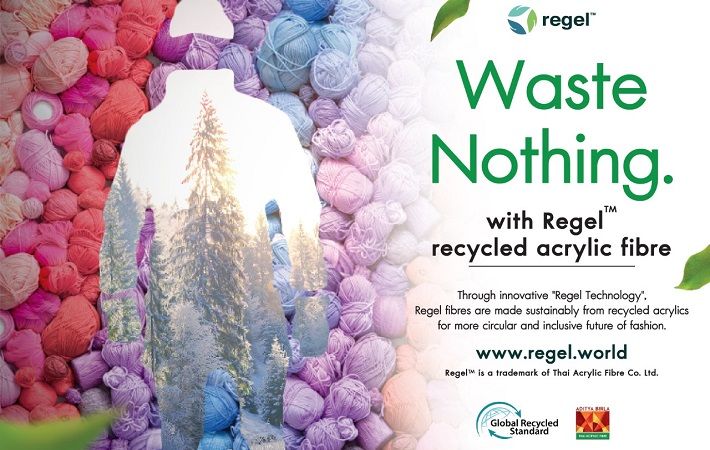
Waste accumulation and its management is one of the key sustainability challenges of the industry and therefore recycling pre-consumer, post-consumer and in-process waste to make new products is one of the most preferred and prevalent ways to reduce the environment impact, the company said in a media release.
“Regel is a unique innovation as it is one of the first successful commercialisation of acrylic fibre produced by recycling the waste. The idea for Regel was conceptualised from our interaction with key fashion retailers who are looking to replace the conventional fibres with materials that have a better sustainability index. It took us almost 1.5 years of extensive R&D to formulate the process and technology for recycling acrylic waste,” said Thomas Varghese, business head – textiles, Aditya Birla Group.
Regel fibre is composed of 50 per cent recycled waste and 50 per cent virgin polymer, with potential to go even higher on the recycled component. “The unique part of Regel technology is that it ensures the homogeneous mixing of both recycled and virgin polymer, while maintaining the quality and other functional benefits of acrylic fibre like warmth, comfort and vibrant shades. This is a key advantage of Regel fibre over other techniques like mechanical shredding where there is a limitation on content, quality and colour selection as the behaviour and properties of Regel fibre is exactly same as fresh acrylic fibre,” stated Siddhartha Chakrabarti, chief research & technology officer, TAF.
Regel fibre is commercially available and produced at TAF’s acrylic fibre plant in Saraburi.
Fibre2Fashion News Desk (KD)